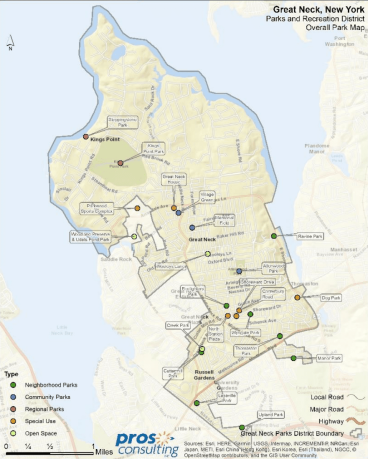A former Great Neck Park District commissioner candidate is accusing the district and its commissioners of conducting ballot harvesting, a tactic that is criticized for compromising the fairness of elections, and using his failed campaign as a means to fight the voting procedure.
“We know that the tactics they use are unethical,” said Gordon Charlop, who ran in the Dec. 12 race for park commissioner.
Ballot harvesting is a voting procedure whereby individuals collect completed absentee ballots and return them for the voters. This method has been criticized for compromising the fairness of elections through lack of oversight and potentially influencing voters, according to the nonprofit Lawyers Democracy Fund.
New York State does not have any laws that specify whether or not someone can return mail-in ballots on behalf of a voter. Legislation to prohibit ballot harvesting in New York State has been presented, but none has been passed into law.
New York laws do not specify who can and cannot return an absentee ballot, whether it can only be the voter or someone chosen by the voter as some states have implemented.
Charlop called the use of ballot harvesting “disgraceful” and an unethical way to conduct an election.
“It’s something they do every election,” Charlop said, “so that they can stay in power.”
When asked about ballot harvesting, recently re-elected Park Commissioner Tina Stellato said she was not even sure if she knew what the term meant and denied that she or anyone else in the district was participating in such acts.
“A lot of people vote by absentee, they have the right to vote by absentee,” Stellato said. “I’ve seen no foul play in any elections.”
Charlop’s campaign ran on two main issues: advocating for the south side of the park district and shining a light on what he alleges to be ballot harvesting.
“The residents here have had enough,” Charlop said. “If we get rid of this ballot harvesting, then we’ll start to have some fair elections.”
According to data provided by the park district, Stellato won the race with 1,580 votes and Charlop received 710.
A total of 641 in-person votes were cast for Charlop and 719 for Stellato, according to the park district. This equates to a total of 69 absentee ballots cast for Charlop vs. the 861 cast for Stellato, leading to the incumbent garnering 92.6% of absentee votes.
The Great Neck Park District did not provide the difference between machine votes and absentee votes cast in each district. Charlop provided election results for each district based on information he collected from poll watchers on Election Night.
The biggest discrepancy between the candidates was in District 1 – which encompasses Kings Point – where Charlop said he received 151 total votes and Stellato garnered 779. In this district, 22 absentee ballots were cast for Charlop and 398 were for Stellato.
Charlop said that the high voter turnout in the Kings Point area coincides with the increase in money the park district is paying to the village in the recently updated lease agreement for Kings Point Park. The lease, which was previously about $35,000 a year, jumped to approximately $350,000 annually.
But speculations began before the election results came in.
Charlop said on Nov. 22, the first day he could view the voter registration in the park district, there were already about 1,200 absentee ballots mailed out in the district.
When Charlop was able to view the list of absentee ballots sent with names as a candidate, he said he found many individuals registered who did not live in the district. He was not able to leave the district’s office with copies of these records.
Charlop questioned the validity of more than 1,000 absentee ballots within the district as there are narrow qualifications to receive one, saying he suspects very few meet the requirements and are illegitimate.
“The whole point of an absentee ballot is that you’re really going to be away,” Charlop said. “The idea of people going up to you saying ‘here sign this, this is like a proxy vote and we’ll take care of it from here’ that’s not what the intention is, at least in my opinion.”
Registered voters are able to vote by absentee ballot if they are out of the country on the day of the election, unable to go to polls due to illness or disability, a primary care provider for someone who is ill or disabled, a resident or patient at a Veterans Health Administration Hospital or imprisoned.
A source close to the park district said he has observed a stark increase in absentee ballots, jumping from 150 to more than 1,000 over the years.
Charlop said two days before the park’s 2022 election, he and others were approached by a commissioner he declined to name at a park. He said the commissioner asked them to sign an application he would “handle” after being signed.
He said he believed the application was to receive an absentee ballot.
The source close to the park district also told Blank Slate that some residents had been mailed absentee ballots despite not requesting them or had filled out an application for one but never received it to vote. The source said there are no checks and balances on the integrity of the election.
“If there is a machine in place that generates these ballots and people are not actually the ones who vote, you don’t have an honest election,” the source said. “That’s wrong.”
When asked if he was going to continue fighting, Charlop had one thing to say: “I’m not going anywhere…I owe it to my community.”

